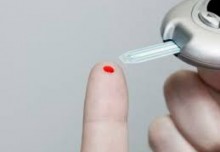 I came across some recent research that is – to say the least – counterintuitive. People drink diet carbonated drinks because they are being careful about their sugar intake and their health, right? Well, recent research reported in the Journal of the American Geriatrics Society says the opposite is true among older adults.
I came across some recent research that is – to say the least – counterintuitive. People drink diet carbonated drinks because they are being careful about their sugar intake and their health, right? Well, recent research reported in the Journal of the American Geriatrics Society says the opposite is true among older adults.
A group of scientists at the University of Texas Health Science Center in San Antonio, Texas, studied the link between diet soda consumption and weight and waist size in 750 patients over age 65. What they found seems to be the opposite of what one would expect from people consuming “diet” beverages.
The scientists measured the waist, height and weight of these 65+ year olds along with their diet soda intake over a ten year period. For their analysis they divided the patients into three groups: those who consumed at least one diet soda daily, those who drank less than one soda daily and those who drank no diet soda at all. The first group showed an average increase of 3.16 inches in their waistlines over the decade of the study. Those who consumed less than one diet soda a day increased an average of 1.83 inches during this ten years, but older adults who drank no diet soft drinks increased their waistlines by only about 0.8 inches. Ironically, the increase in waist size was not tied to an increase in overall weight. It was the belly fat associated with diet sodas that resulted in growing waistlines.
As I have written in other posts, the weight we put on around our middles is the most unhealthy, and it has a direct and negative impact on cardiovascular health. And while the researchers cannot explain exactly why this increase in waistline was tied to drinking low calorie carbonated beverages, it is pretty clear that diet soda should be off the menu for older adults. I also have mentioned in other postings that carbonated drinks have a negative effect on a person’s esophagus resulting in a higher likelihood of gastro-esophageal acid reflux, GERD, owing to the carbonic acid in sodas. Carbonated drink consumption also is associated with calcium depletion in the bones and ultimately osteoporosis.
So, if you are a caregiver to an older loved one encourage them to find alternative beverages to their diet sodas. At the very least help them to cut their intake of these caustic libations as even getting most of the way to a zero soda goal will have its benefits.
Charlotte Bishop is a Geriatric Care Manager and founder of Creative Care Management, certified professionals who are geriatric advocates, resources, counselors and friends to older adults and their families in metropolitan Chicago. Please email your questions to info@creativecaremanagement.com.






